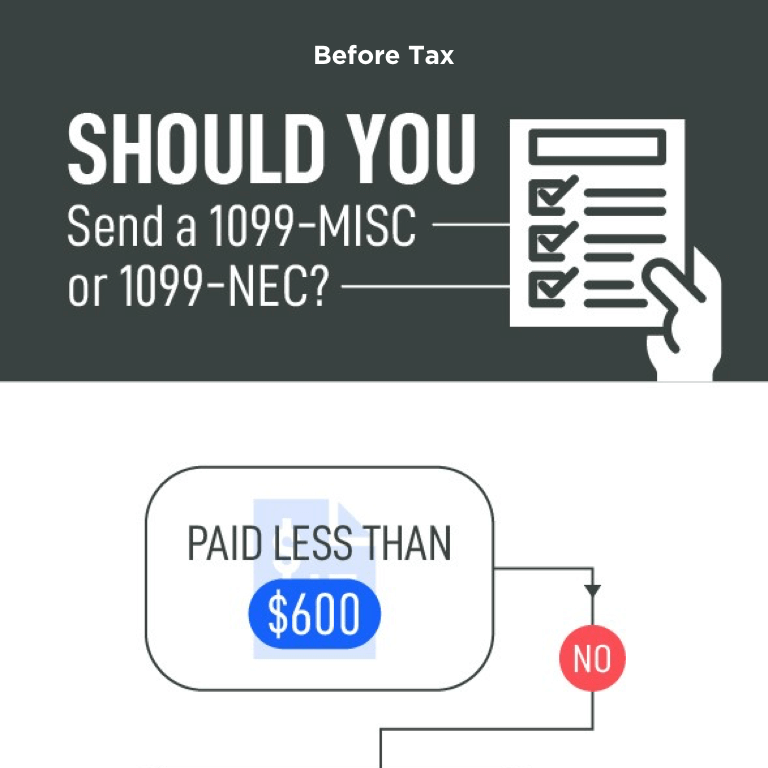S Corps can save a lot of money on taxes — more than $5,000 annually for some individuals. However, their complexity and restrictions make them a non-starter for some businesses.
Along with these major tax savings S Corps pay new taxes and fees, so we created this calculator to simplify the decision. This tool allows businesses to confidently examine the possibility of switching to an S Corp and investigate this strategy further with their CPA.
Key Takeaways
- S Corporations are the most popular corporate entity among small businesses due to their tax advantages and flexibility.
- Determine if your company's income justifies the tax benefits of becoming an S Corp, considering higher costs, compliance requirements, and administrative complexity.
- Consult a tax professional or CPA, experienced with business taxes in your state, to receive specific guidance tailored to your company's needs.
Soon we'll walk you through how their tax savings work and compare how they work against Sole Proprietors, LLCs, and C Corps.

Because of their tax advantages, S Corps have become very popular. In 2017 they made up more than 75% of corporate returns.
Understanding S Corporations
An S Corporation has different tax benefits than a normal C Corporation. Unlike C Corps, which are taxed twice, S Corps get pass-through taxation. So profits and losses are given directly to shareholders, who then report them on their personal tax filings and are taxed at their individual tax rates.

To become an S Corp, firms must apply for S Corporation tax status with the IRS. This strategy allows profits to be distributed to shareholders while avoiding corporate taxation. Certain qualifying conditions must be met, such as shareholder caps, restrictions on shareholder categories, and stock issue requirements.
Calculating S Corp Tax Savings
Calculation is the comparison of how new tax rules, fees, and complexity offset the benefits of S Corps tax savings. First, owners must pay themselves a "reasonable salary" as W-2 income in addition to collecting tax-advantaged distributions.

The tax advantage comes from distributions, which do not pay self-employment tax. This includes 12.4% for Social Security and 2.9% for Medicare, for a punishing tax rate of 15.3%. However, owners will still pay income taxes on their entire business income.
W-2 salaries are subject to new payroll taxes, which reduce the tax savings from S Corp distributions.
Furthermore, in some states, S Corporations may be liable to franchise, excise, and other business taxes, which reduces potential tax savings. These smaller taxes are often offset by the savings from avoiding the punishing tax rates of Social Security and Medicare. Even after accounting for payroll and franchise taxes, the savings from avoiding self-employment can be tremendous.
Comparing S Corps vs. Sole Proprietorships
Because S Corps provides a W-2 salary and profit distributions, there are many differences from sole proprietorships with standard self-employment income.
S Corp Taxation Complexity
S Corporations simply have more complex tax rules, when compared to sole proprietorships. S Corp owners must manage more types of taxes, including the overhead of running quarterly payroll. In addition, S Corps may be expected to comply with state-level business filings, increasing the need for compliance and reporting.

Reduction of Self-Employment Taxes
S Corps can reduce self-employment taxes (Social Security and Medicare), which are very expensive. S Corporation owners can dramatically reduce their tax rate by structuring income as a combination of salary and distributions.

Comparison Example
Assuming a sole proprietorship, a self-employed individual earning $100,000 a year would need to pay $15,300 in self-employment taxes.
For a single-member LLC S Corp owner earning $100,000 and taking a $50,000 salary, the self-employment tax burden is reduced to $8,310, resulting in a savings of $6,990.
Please note the tax advantages of S Corp status may differ based on individual circumstances and state tax legislation. States with high payroll taxes may create new challenges and complications for tax planning.
Comparing an S Corporation vs. LLC
As LLCs don't normally provide significant tax differences from a Sole Proprietor, the tax comparison remains the same as our previous example.

LLCs provide a separation of personal assets from corporate liabilities. While an LLC provides restricted liability, defending personal assets against legal claims, it does not automatically bring tax benefits.
By default, revenue from an LLC is passed through to its owners, who report it on their personal tax returns. So in this default state, a single-member LLC is taxed similarly to a sole proprietorship. Business revenue and losses are recorded on the owner's tax return, and the full income is liable to self-employment tax.
LLCs have fewer compliance obligations than S Corps. While some states may require LLCs to file annual reports and pay a franchise taxes, S Corps will have both of these obligations and likely more.
So our comparison for the Sole Proprietor above holds here for the single-member LLC, which will pay full self-employment tax relative to the more efficient S Corp.
Comparing an S Corporation vs. C Corporation
C Corps usually have far bigger tax burdens than S Corps. C Corps are regarded as autonomous taxable organizations, therefore profits are subject to corporate income taxes. This is known as "double taxation" where corporate profits are taxed before being issued as dividends and taxed again on shareholders' personal tax returns.
The federal corporate tax rate for C Corps is a flat 21%, with varying state corporate tax rates adding to the burden. In contrast, S Corps completely dodge corporate taxes, with income and losses going directly to shareholders' tax returns.

Most small businesses choose S Corps because of their pass-through taxation benefits and tax efficiency, while C Corps are more desirable to investors. This is because they have fewer requirements about the types of stock that can be offered and who is able to be a shareholder.
Downsides of Starting an S Corporation
Although S Corps offer a number of tax benefits and advantages, it's important to be aware of their biggest downsides:
- Increased IRS Scrutiny - Choosing to incorporate as a S Corp will introduce more scrutiny from the IRS, particularly when it comes to owner compensation. S Corp owners must pay themselves a reasonable salary as mandated by the IRS to avoid potential fines or audits.
- Complex Payroll Management - Paying S Corp owners involves following certain rules, like submitting W-2 forms. This can be complicated work, so getting professional help is important to make sure you stay compliant.
- State Franchise Taxes - When you become an S Corp, your state may impose franchise taxes. Use our calculator to identify these taxes and work with your tax professional to see how they apply to you.
- Initial Formation Costs - Forming an S Corp can be costly, particularly during the first year. The setup costs often range from $500 to $1,500. These accountant fees will decrease your potential tax savings.
- Ongoing Tax Compliance - To maintain S Corp status, paperwork must be regularly filed, often with the help of tax experts. S Corp tax filings are complex, sof it's a good idea to get professional assistance to ensure accuracy and IRS compliance.
- Passive Income - S Corps may face adverse tax consequences on certain types of passive income, such as interest, dividends, and capital gains. This income is subject to the corporate tax rate at the entity level rather than being simply passed through to shareholders.

States With S Corp Franchise Taxes
Certain states apply a distinct set of taxes on S corporations, which can sometime nearly eliminate their tax benefits. These taxes, which include franchise, excise, and other business taxes, may impose extra taxes on S corporations.
Notably, jurisdictions such as California and Delaware apply similar taxes to all LLCs, rather than simply S Corps. Luckily, our tax calculator discovers all business, LLC, and franchise taxes across all 50 U.S. states:
States Without S Corps Franchise Tax
States that don't impose business taxes on S Corps include Alaska, Arizona, Florida, Hawaii, Indiana, Kansas, Maine, Maryland, Michigan, Missouri, Montana, North Dakota, Pennsylvania, South Dakota, Utah, Virginia, and West Virginia.
When to Consider Becoming an S Corporation
Deciding when to become an S Corps doesn't just hinge on having enough income to justify it. Here are essential elements to assess if changing to an S Corp is something you can consider:
- Sufficient Income - Many small firms consider S Corp status after they earn enough revenue to cover the related fees and regulatory requirements. It is crucial to find a balance between administrative expenses and potential tax savings.
- Current Business Structure - Because an S Corp is only a tax classification available to incorporated entities, you'll need to have a limited liability company.
- Shareholder Eligibility - For a business to be considered an S Corp, it needs to meet certain requirements, like having fewer than 100 shareholders who are US citizens or permanent residents.
- Reasonable Salary Assessment - determine if each owner can get a sufficient reasonable salary to make their potential tax savings possible. Certain industries, positions, and income levels can make this difficult. Your CPA should use professional software to set your S Corp salary.

Recap & Next Steps
We've not only seen that S Corps offer tremendous tax advantages, but do so with noteworthy costs and complexity. While we hope this guide has created some excitement to speak with your tax professional, you should always discuss the downsides with them as well.
If you're not in a position to manage the added complexity of more tax compliance and expensive formation costs, then it's best to wait. S Corps should only be considered for businesses with the profits and bandwidth to justify them.
While our calculator attempts to factor in the major taxes and fees, most business owners face, it's no replacement for working with a qualified tax professional to assess your personal tax situation. Get started calculating your savings and share the link to your results with your tax pro today.







